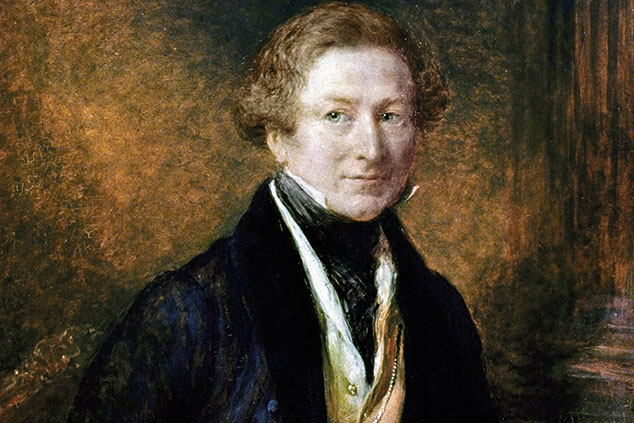
I’ve just written a book all about the past, present and future of taxation. Not the most enticing subject for a book, you might think, but I promise you it is. There is fascinating story after fascinating story. Today and over the next two weeks, I’ll be telling you some of them. The book’s called Daylight Robbery and we actually get that expression from the window tax that was levied in Britain between 1696 and 1851.
Window tax began as a replacement of hearth money, which involved collectors entering people’s homes twice a year to count their fireplaces. It was hated and the monarchs William and Mary had it abolished after the Glorious Revolution of 1688 to ingratiate themselves with the people. A replacement for the lost revenue was soon found in the form of window tax. No invasion of the Englishman’s sacred privacy was required: an assessor could just walk past and count his windows.
But the tax had many unintended consequences, the worst being that it made people ill. It was “a direct encouragement to disease”, said The Lancet. The numerous epidemics during the Industrial Revolution – typhus, smallpox and cholera – were made worse by the cramped, damp, windowless dwellings. By the 19th century, opposition to it was everywhere. “Neither air nor light have been free since the imposition of the window-tax,” fumed Charles Dickens. Pamphlets were handed out, speeches were made. Campaigning went on for decades. When a motion was finally put before Parliament, legend has it that MPs cried “Daylight robbery!”.
Protectionism financed central London
Who would have thought that simple tax would make people ill? But taxes have many strange, unintended consequences. The Corn Laws are another example. In the aftermath of the Napoleonic Wars the Tories imposed tariffs on imported grain to protect British crop producers against the falling cost of bread. But, protected from foreign competition, crop producers felt little pressure to improve productivity and the cost of grain stayed high. The high cost of food hurt the poor most, while creating some of the richest British aristocratic dynasties in history. The huge estates of Cadogan, Westminster and Bedford, which still occupy much of central London, were built on the back of these protectionist tariffs.
But the most pernicious unintended consequences were in Ireland. In the 1840s, the country was hit by the Great Famine. Blight struck the potato plant on which Ireland depended as its staple crop. It needed food from abroad and there was plenty of cheap grain waiting to be exported, especially from the US, but the Corn Laws made the cost too high. Over a million people died of starvation. A million more fled to the US to escape it.
When you consider the influence of the Irish on the destiny of the United States – over 20 presidents claim to have been of Irish descent – you can see what an effect even apparently minor taxes can have on human history. Attempts to reform the laws met with opposition. Parliament was full of landowners. Even Britain’s tax commissioners were landed gentry. In 1838, free-trade campaigner Richard Cobden set up the Anti-Corn Law League and in 1841 he was elected as an MP. He eventually won the ear of the prime minister, Sir Robert Peel.
Repealing the Corn Laws
“We must make this country a cheap country for living,” Peel had declared, and his reintroduction of income tax in 1842 – seven pence in the pound on incomes over £150 – meant he was able to remove over 600 duties and reduce rates on more than 500 further items. Thanks to his tax, trade and financial reforms, Britain actually ran a surplus. He repealed duties on sugar, livestock, cotton, meat and potatoes, as well as glass excise taxes. “We hail with joy the abolition of the duty on glass,” said The Lancet, “a tax only to be equalled in cruelty by the duties on corn.” Peel would eventually repeal the Corn Laws as well.
He had voted against repeal each year from 1837 to 1845, but with food supplies scarce on the mainland and famine in Ireland, he changed tack. British farmers did not produce enough grain to feed its growing population anyway, let alone in a famine. Peel was strongly opposed from within his own Conservative Party. But he found Whig support and the laws were finally repealed in 1846. He resigned the same day, never to hold office again. But as Cobden foresaw, Peel’s reforms ushered in an era of free trade in Britain in the second half of the 19th century that in terms of innovation, invention and rising prosperity was perhaps the greatest in British history.
Daylight Robbery: How Tax Shaped Our Past And Will Change Our Future, Penguin Business, £20. Audiobook on Audible.co.uk. Signed copies are available at dominicfrisby.com